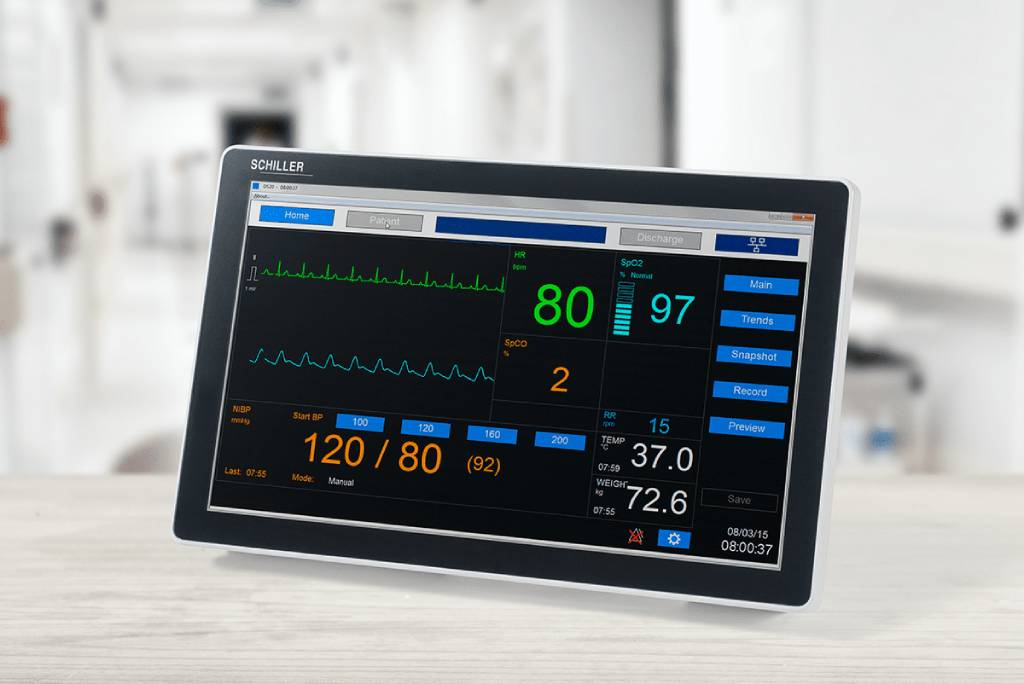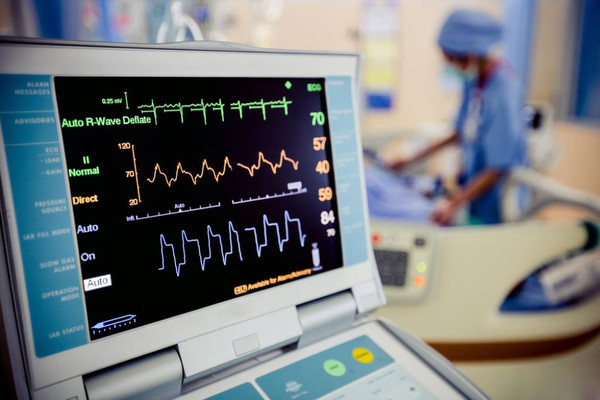What Is an EKG Machine & How Does It Work?
Technology has consistently played an important role in our ability to understand, diagnose, and treat a wide range of health conditions. One such indispensable technological advancement is the Electrocardiogram, more commonly known as the EKG or ECG.
While it may appear as a complex tangle of wires and graphs to the average person, the EKG machine is a true lifesaver, offering insights into the heart's electrical activity used to efficiently and effectively diagnose and treat patients.
Today, we are going to explore the ins and outs of this particular piece of medical equipment. We will cover not only how this device is used but also its importance in the medical field and associated costs. Get ready to have all your questions about EKG machines answered.
Everything You Need to Know About EKG Machines
First things first: What is an EKG machine?
The Mayo Clinic gives one of the most straightforward definitions: An electrocardiogram records the electrical signals in the heart. It's a common and painless test used to quickly detect heart problems and monitor the heart's health.
While it sounds simple, these machines do very important work.
What is an EKG Machine Used For?
EKG machines are used to gain insight into a patient's heart health. They're utilized by both doctors and EMTs to show how fast and regularly the heart is beating. By analyzing the rhythm of the heart, how fast it's beating, and the strengths and timing of the electrical impulses to diagnose heart-related conditions.
EMTs use EKG machines in emergencies to monitor a patient's heart. While doctors may request an EKG for a patient if they're experiencing chest pain, identify irregular heartbeats, or see how well a medication or pacemaker is working (among other things).
An EKG may also be a part of routine patient care since a change in the EKG over time may be a sign of a heart issue.
How Does an EKG Machine Work?
Johns Hopkins Medicine explains that EKG machines work by placing electrodes (small, plastic patches that stick to the skin) at certain spots on the chest, arms, and legs. The electrodes are connected to the actual EKG machine by lead wires.
The electrical activity of the heart is then measured, interpreted, and printed out. There's a common misconception that EKG machines send electricity into the body, but this isn't the case. Rather, it's the natural electrical impulses that coordinate contractions of the different parts of the heart to keep blood flowing the way it should. An EKG machine simply records these impulses. The entire procedure is quick and painless!
Components of an EKG Machine
As you can see, there are a couple of components of an EKG machine. While the machine itself serves as the diagnostic station, the electrodes used are equally important.
Electrodes come in different shapes and sizes, some of which are better than others for enhancing the detection of electrical signals to the EKG machine. It's important to only use electrodes that are designed for the monitor you are using. This is just one important tip for enhancing the detection of electrical signals to obtain accurate EKG results.

How Much Does an EKG Machine Cost?
The cost of an EKG machine ultimately depends on the model you find. Many professionals estimate that a new, portable EKG machine can cost anywhere from $2,000-$5,000.
However, many practices should consider investing in versatile equipment that can operate as both an EKG machine and a vital signs monitor. The Schiller DS-20 0A.800005 Diagnostic Station offers speed, precision, and, best of all, a single cleaning surface at the first point of contact with patients. While it costs more than the average EKG machine, it can perform Vital signs (Temperature, NIBP, SPO2, HR, and Respiration Rate), Resting EKG, and rhythm EKG, all in one device.
The Schiller DS-20 0A.800015 Diagnostic Station 12 Lead EKG is another option that includes more EKG leads.
Finding an EKG Machine for Your Practice
There are many EKG options out there, which can feel daunting for healthcare professionals seeking to update their equipment. It's best to find an EKG machine that not only meets the needs and budget of your practice but is also versatile and portable.
Along with the aforementioned options, the Schiller 0A.108000 AT-102 CARDIOVIT G2 is a popular model that provides a reliable analysis of the EKG for both children and adults. Or, something more portable is the Midmark 4-000-0080 IQECG that instantly captures and analyzes the 10 seconds of EKG seen on screen.
Browse our complete collection of modern EKG machines from ExamTablesDirect to improve the level of care and comfort you can provide to patients.
{ "@context": "https://schema.org", "@type": "BlogPosting", "mainEntityOfPage": { "@type": "WebPage", "@id": "/what-is-an-ekg-machine-and-how-it-works" }, "headline": "What Is an EKG Machine & How Does It Work?", "description": "An EKG machine is an important piece of medical equipment for most practices. Learn more about what an EKG machine is and how it works.", "image": "https://cdn11.bigcommerce.com/s-a1hrl7fudh/images/stencil/1280w/uploaded_images/ekg-machine-monitoring-heart-rate-in-icu.jpg?t=1702545010, "author": { "@type": "Organization", "name": "ExamTablesDirect", "url": "https://www.examtablesdirect.com/" }, "publisher": { "@type": "Organization", "name": "ExamTablesDirect", "logo": { "@type": "ImageObject", "url": "https://cdn11.bigcommerce.com/s-a1hrl7fudh/images/stencil/500w/logo_1549312466__13304.original.png" } }, "datePublished":"12/15/2023" }
Recent Posts
-
What Is an EKG Machine & How Does It Work?
Technology has consistently played an important role in our ability to understand, diagnose, and …15th Dec 2023 -
Creating a Comfortable and Efficient Exam Room Layout
Comfortable, efficient exam room layouts are at the heart of a streamlined healthcare experience. …22nd Nov 2023 -
Organize Your Exam Room with These Essential Cabinet Solutions
In the healthcare industry, precision and efficiency are of the utmost importance. An organized e …6th Nov 2023




